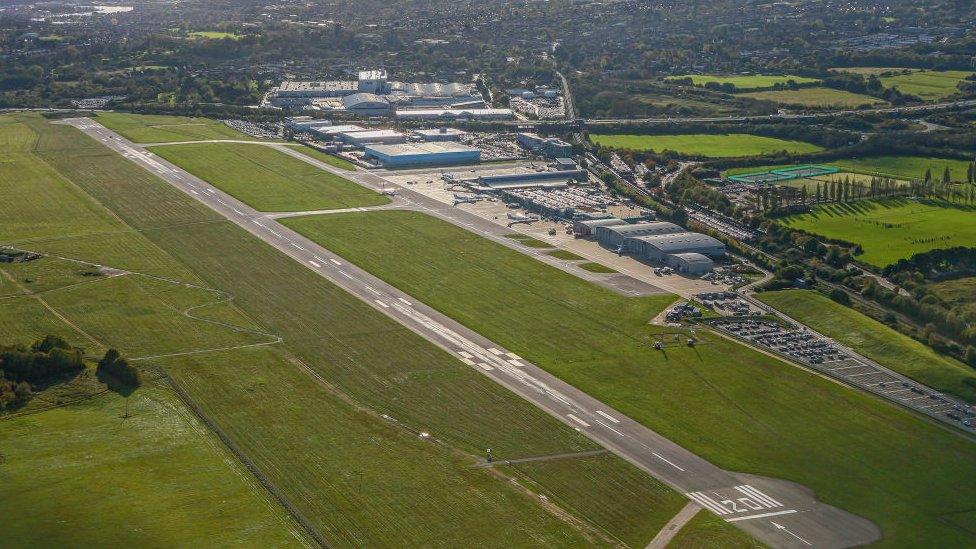Flybe: What are the wider implications of the airline's demise?
- Published
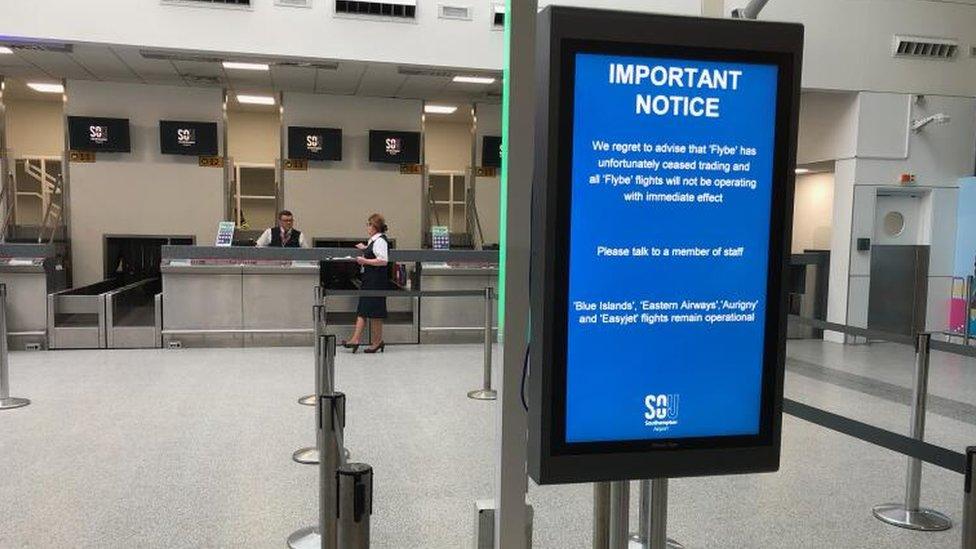
An empty check-in desk at Southampton Airport
Flybe went into administration on Thursday, putting the jobs of more than 2,000 airline staff at risk. But as the knock-on effects start to be felt, what might the extent of the impact of Flybe's demise be on the wider economy?
"Yesterday we were in business, today we are not."
Those were the words of taxi firm boss David Crouch, who says he has had to lay off his drivers as a direct result of Flybe's demise. It won't be an isolated case.
Southampton Airport will perhaps be hardest hit. Flybe represented up to 90% of its business, carrying almost two million passengers a year.
Its collapse will inevitably have a knock-on effect on businesses and customers across the region - and further afield.
This newly formed gap in the market is likely to see rival airlines take on some of the more lucrative flights.
Flybe specialised in low-volume routes with smaller aircraft, aimed at business day trips and visits to friends and family.
BBC South's transport correspondent Paul Clifton said these point-to-point services would not interest the likes of Ryanair or EasyJet and many routes would simply close, with many having been haemorrhaging money for a long time.
He said the company had made a loss in eight of the past 10 years and Southampton has "suffered from putting all its eggs in Flybe's creaking basket".
"It's not just the 200 Flybe staff there who face an uncertain future. So too do many of the 1,000 other people whose livelihoods are at the airport," he said.
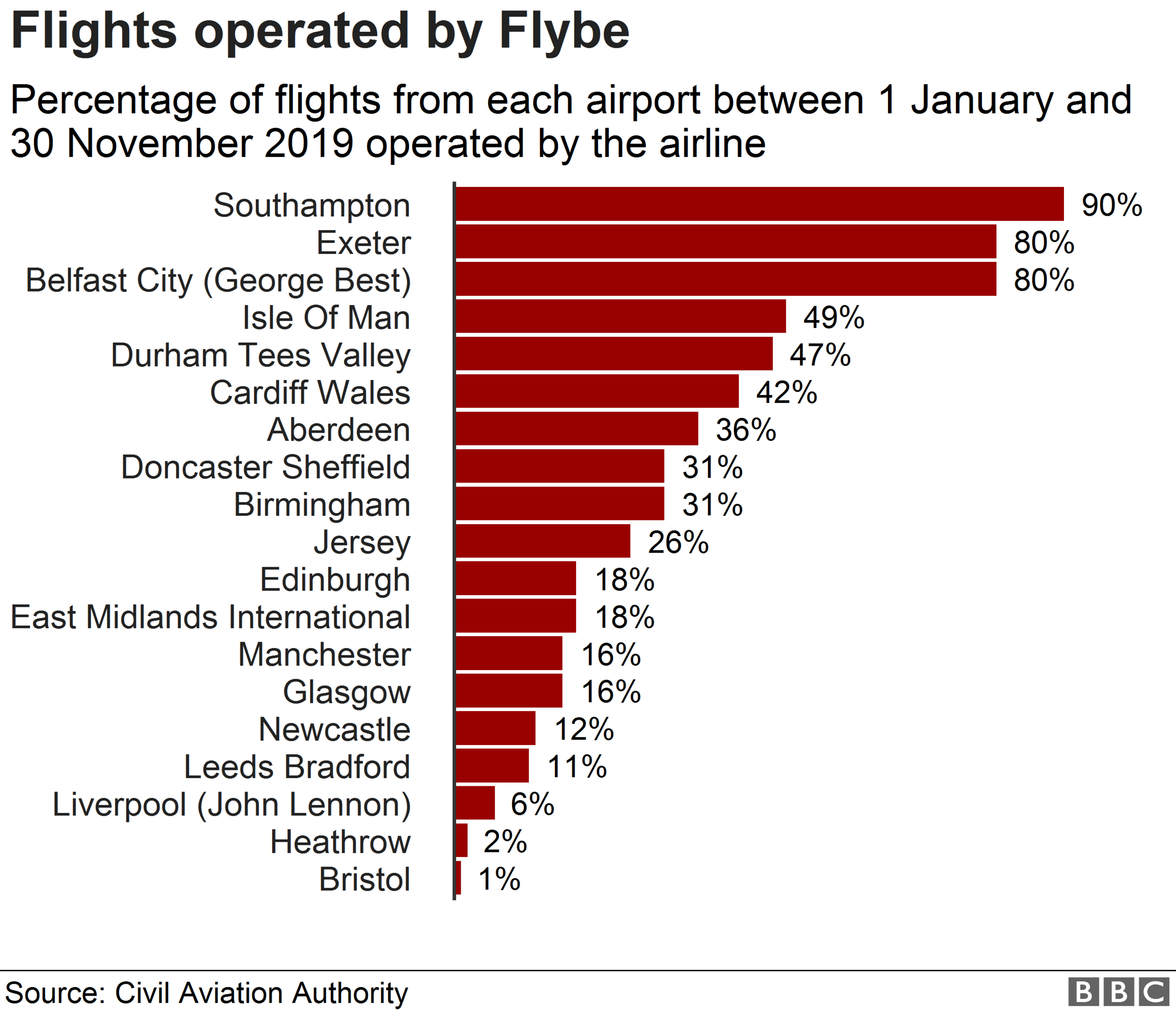
Flybe accounts for a large proportion of flights from many regional airports
Taxi drivers, baggage handlers and local businesses are just some of those facing uncertainty, as well as the carrier's own staff and passengers.
The airport itself has in recent months laid out ambitious plans to expand and remains bullish about its future.
Our transport correspondent said such an expansion would allow larger planes to land, such as the types used by EasyJet and Ryanair.
"If the council says no - and it has previously declared a 'climate emergency' - the airport's prospects are bleak," he added.
"At least the people who live under the flight path can look forward to a quiet summer."
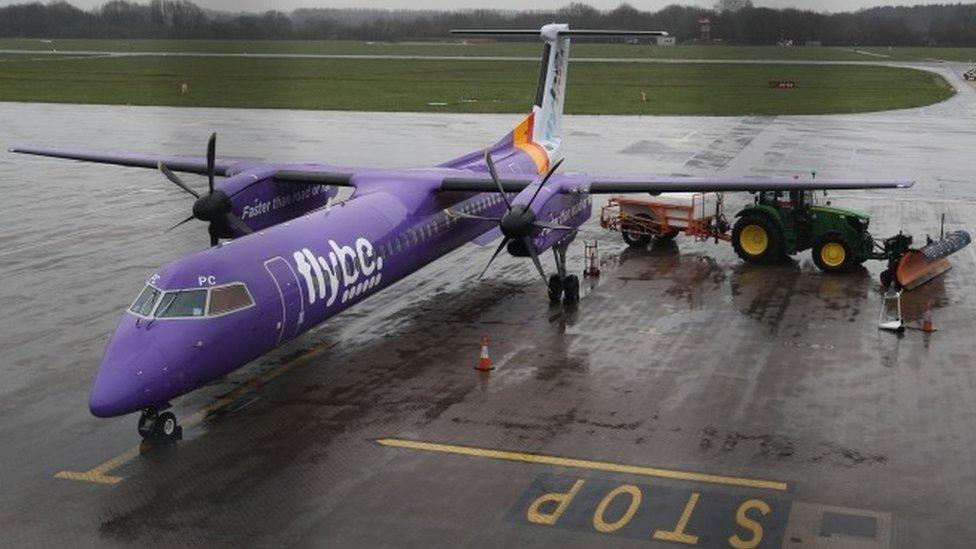
A Flybe plane at Southampton Airport
The GMB union said it feared Southampton was among several airports that could close altogether because of Flybe's demise.
The others are Belfast City, Exeter, Newquay, Wick, Jersey and Cardiff.
The union said that between them these airports have at least 1,000 employees and support about 800 jobs in the supply chain and wider economy.
However, it acknowledged that this might be a conservative estimate and in all likelihood the figure could be much higher.
Nadine Houghton, GMB's national officer, said: "These hubs are vital parts of the UK economic infrastructure that communities and regional economies rely on.
"Without them economic disparities will widen, but now they face closure."
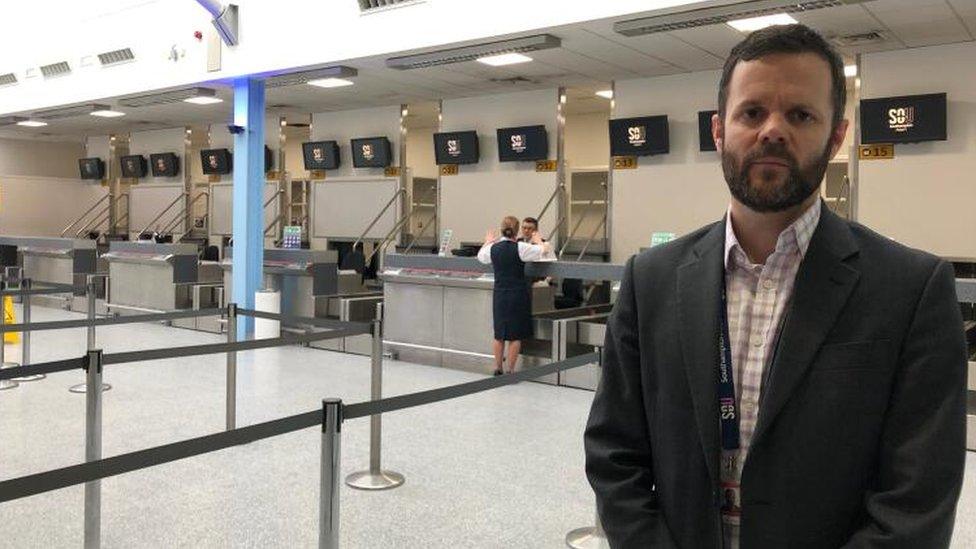
Neil Garwood, Southampton Airport's boss, said he was "incredibly saddened" by Flybe's demise
Southampton Airport bosses, who want to extend the runway by 164 metres, said they still "plan absolutely to rebuild".
Their proposals have been opposed by local councils, including Southampton and Winchester, as well as environmentalists, and Flybe's demise is another significant setback.
The airport's managing director, Neil Garwood, said: "The evidence is clear that the airport in Southampton is not resilient to these sorts of shocks in the aviation sector and these happen from time to time - and when they do it's terrible and it's devastating and we really feel for everyone who's involved.
"It's a very difficult situation that we are encountering right now and many airports across the country are in a very similar position."
He added that despite the collapse, there was still a strong demand for regional flights from Southampton.

Taxi company director David Crouch said he was "half expecting" the news of Flybe's collapse
The fallout from the airline's collapse has already had an impact on businesses in the city.
David Crouch, director of taxi company Checker Cars, which has been based at Southampton Airport for the past 15 years, said: "Yesterday we were in business, today we are not.
"We were half expecting it - we knew the writing was on the wall. That's what happens when you have 95% of your eggs in one basket.
"That's it basically… it's very sad."
Mr Crouch said he had 30 self-employed drivers and a handful of booking staff.
"Without passenger money coming in there is no machine to keep it going," he said.
Captain Ben Wing, who spoke to the BBC after landing at Southampton, said he had heard nothing from the company
Swissport does most of the baggage handling at the airport and it will have to adapt to the new reality.
A spokesman for the company said: "We were saddened to hear the news about Flybe, a business partner we have proudly served for many years.
"Our immediate priority is to support our employees most affected by this news and we'll be working closely with our partners in the coming days as we learn more about the situation."
'Huge blow'
Hampshire County Council described Flybe going into administration as a "huge blow", while Southampton City Council said it would "severely impact local connectivity and supply chains".
The city council's leader, Christopher Hammond, said the authority had set up a dedicated phone line to support those affected.
"We are also working closely with colleagues at Jobcentre Plus to help Flybe staff who are based in Southampton," he said.
"We urge the government to take positive and decisive action to address the situation and provide visible support for the UK's regional airports as soon as possible."
- Published5 March 2020
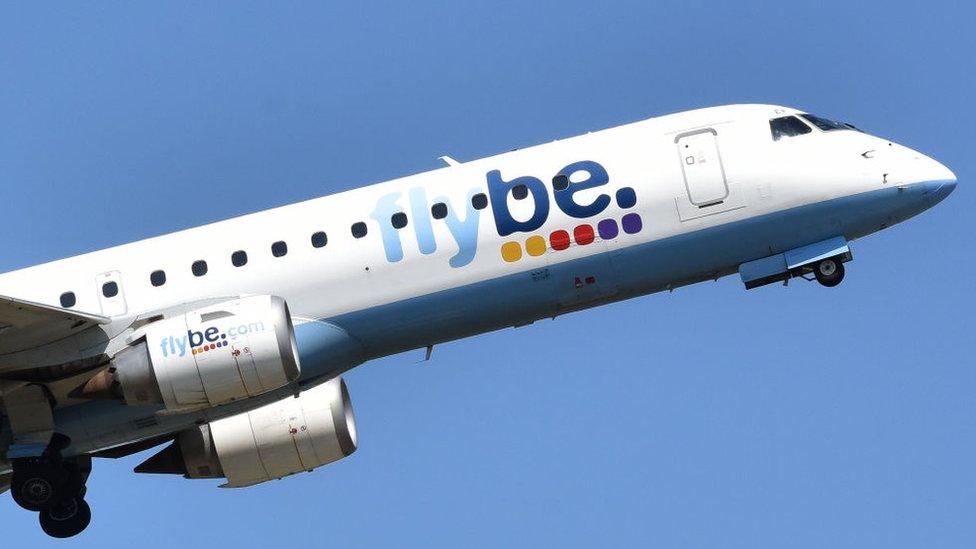
- Published5 March 2020
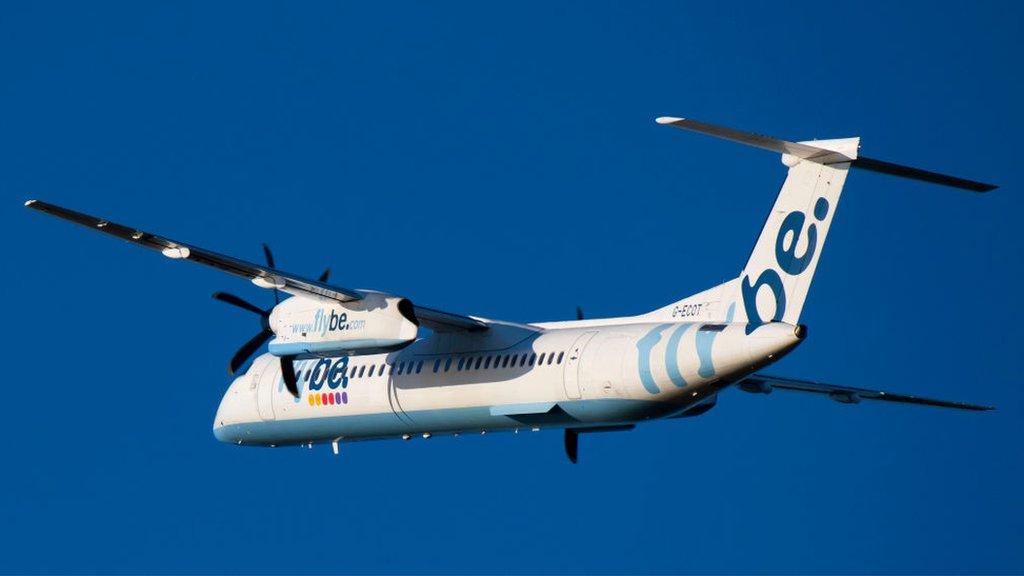
- Published29 January 2020
